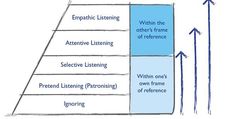
Women were/are trained to be empathetic to children, and with men who society deemed their betters and worthy of their support. They were taught a vastly more complicated mix of empathy and judgement of other women, mixed with a self-denying stoicism that ensured they could continue to support men without men having to notice anything so emotional as this inner turmoil.
Men were trained to fix, to solve, to withstand, and to protect. There was no room for empathy, as that road led to...well, who knows. And that's the problem. It's a place men need to go, but not only do they not know how, but they've been trained to avoid it.
With these two sets of training in mind, is it any wonder that communication can be so hard in a relationship! We were simply not trained to communicate outside of the role society traditionally had set aside for us. For straight and gay couples alike, this gendered communication training is unhelpful in the current era where we try to be better communicators, better partners, and better people.
Learning to listen with empathy can assist us to overcome this training, and improve our relationships significantly. It helps you avoid disruptive, argumentative, and judgemental conversations, and facilitates a sense of being heard and understood.
There are 5 essential steps to the technique:
- Listen with undivided attention. Give the speaker all you've got - no multi-tasking, no thinking other thoughts, no waiting for your turn to make your point. Be completely present.
- Be non-judgemental. That means you do not trivialise, minimise, criticise, or laugh at what the speaker is saying.
- Read behind the words. What's being said and what's being expressed are often different. Notice the emotions - respond to the anger, the frustration, the sadness instead of the facts.
- Allow silence. You don't have to reply immediately, or at all. Let the speaker speak. Often, after a short silence, the speaker will continue, often with their own solution. Learn to tolerate that space.
- Clarify that you understand. Don't assume you understand. Ask questions to confirm what you perceive the speaker to be saying. State back to the speaker what you've heard.
Follow these steps consciously and as a team. It gets easier, and you get better at it until it become the way you communicate. And along the way you're heading towards your preferred you as well!



 RSS Feed
RSS Feed